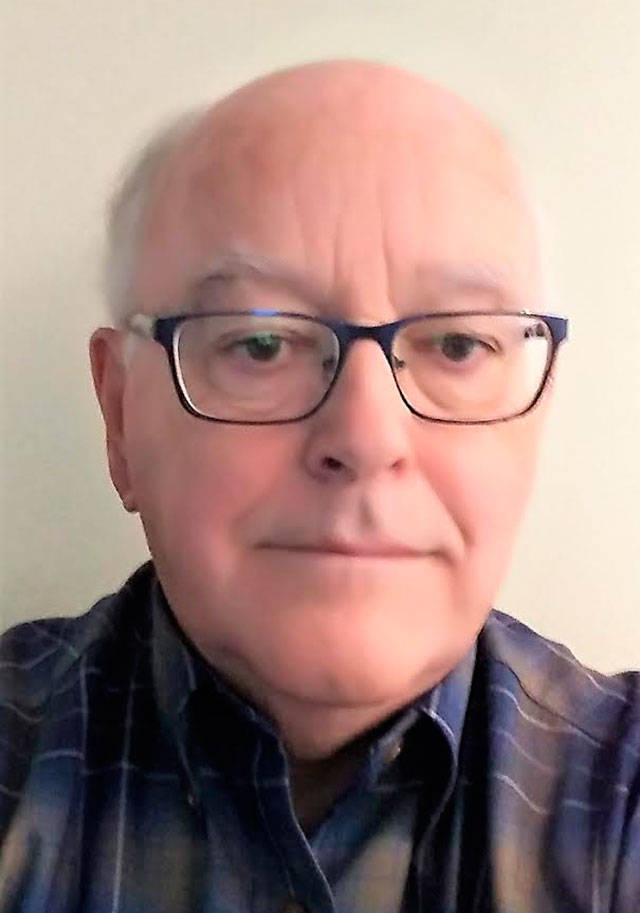You probably know someone who uses the Vashon Maury Community Food Bank. Last year it provided groceries to one in every nine islanders.
For those, like myself, who contribute their time to the organization, those islanders aren’t just our clients, they’re our neighbors — seniors, children, working people. We have a responsibility to provide them not with empty calories, but with food that helps them stay healthy. The food bank’s mission statement was amended last year to reflect that priority.
Fresh fruits and vegetables are, of course, an important component of a healthy diet. I’m pleased to report that the food bank board has adopted a new approach to providing fresh produce to our neighbors that will assure a steady supply of fruits and vegetables all year long — not just seasonally — while continuing to manage our financial resources responsibly.
As part of this new approach, the board made the difficult decision to no longer grow food at the food bank farm, behind Granny’s Attic. While it had been well-received by the community at large and by food bank shoppers, the economics of growing at scale just didn’t pencil out.
We’ll continue to grow fruits and vegetables at the food bank’s smaller garden near the facilities at Sunrise Ridge, using volunteers (including the island’s Master Gardeners group who will be developing a demonstration garden) and a part-time garden coordinator. We also plan to actively solicit donations of produce from island gardeners — while some have donated in the past, the food bank hasn’t engaged in any proactive and organized effort to seek them out.
Those island sources will supplement fruits and vegetables we now intend to purchase wholesale. One big advantage — we can buy produce year-round. When we relied mostly on the food bank farm and garden, we usually could only offer potatoes and onions to our neighbors in fall and winter.
Buying fruits and vegetables, rather than growing most of them ourselves, also makes economic sense. When the board conducted a cost-benefit analysis of last year’s farm and garden operations, the per-pound cost of the crops we produced was higher than we could justify as responsible stewards of donated funds.
We researched alternatives, and found we could buy organic produce wholesale for less than half as much, on average.
The decision to no longer operate the farm was a big factor in allowing the board to adopt a balanced budget for 2017. That’s in contrast to the last two years, when the food bank had to support farm operations using emergency reserve funds.
The board could have chosen to undertake a significant fundraising campaign to fund farm operations, but those also take lots of time and resources.
In the end, we concluded that farming was worthwhile only if it served our broader mission of providing nutritious food, without judgment, to anyone in need. The most cost-effective way to do that is to purchase wholesale.
Because we appreciate the importance of supporting local and sustainable food systems, the food bank intends to give priority to purchasing locally grown produce whenever feasible. We’ll also commit to purchasing organically grown fruits and vegetables that are on the Environmental Working Group’s “Dirty Dozen” list (these are foods that, unless grown organically, contain the highest pesticide residues).
As far as the future of the food bank’s former farm space, the food bank will entertain proposals from other non-profit or civic organizations to keep the land in production. The existing arrangement comes with certain stipulations, but we would love to see the land being used. It just doesn’t work for us to run it ourselves.
Our new approach to providing fresh fruits and vegetables to our neighbors allows us to spend less and get more. That’s a win-win.
In conclusion, on behalf of the food bank board and staff, I want to thank you, volunteers and donors, for your continued generous support.
We’re not a government agency. Three-quarters of our money comes from Vashon individuals and organizations. Island businesses and individuals donated over $200,000 worth of groceries last year. We rely on Vashon volunteers to pick up food in Seattle, unload trucks, repackage bulk supplies, help with distribution, make and serve lunches for our summer Picnics in the Park events and much more.
This spring, you can help us another way: Consider planting one more row in your garden and designating what grows there for the food bank.
You’ll be assisting us in fulfilling our mission. And our neighbors will thank you for it.
— Chip Wright is a long-time Volunteer and current Board Chair of the Vashon Maury Community Food Bank.



